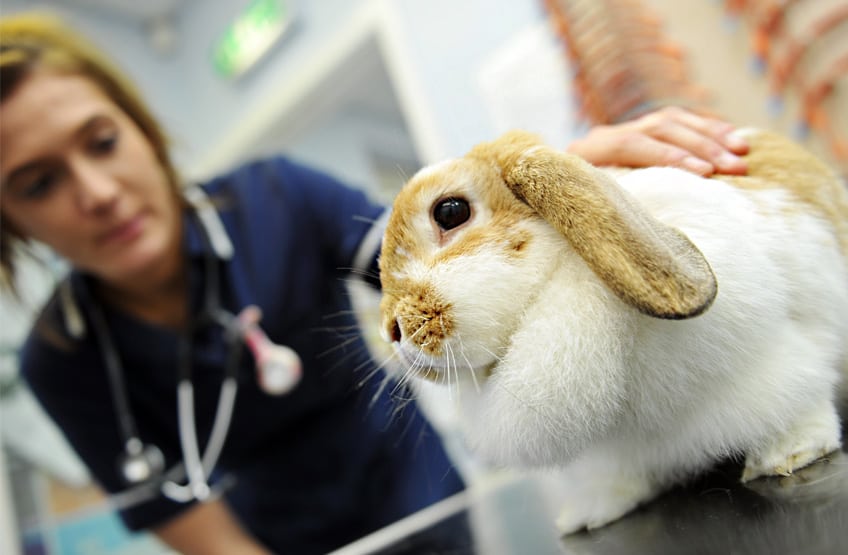If you can’t find the answer to your query below please get in contact with your vet.
What’s involved in admitting my rabbit for an operation
You will have an admission appointment, with your vet or nurse, booked for you on the morning of your rabbits operation. During this appointment you can discuss the upcoming operation, any concerns you may have and complete your consent form.
The consent form will detail the operation to be performed and provide you with an estimate of costs. It is essential that we are able to contact you at all times whilst your pet is in with us.
Please provide us with the most relevant phone number that you will be contactable on and inform us of any changes in contact details. If your pet is on any medication, please discuss with your vet whether the medication should be continued as usual around the time of the operation. On admission please inform us when the medication was last given and of any changes to your pet’s health since last seen by a vet.
Please ensure that your pet is clean and dry, especially if they are coming in for an operation as this will take place in a clean theatre. A towel or pad on the base of the carry cage is much appreciated by most rabbits.
Please also bring some of your rabbit’s usual food, favourite greens or a handful of hay, so we can encourage your rabbit to start eating as soon as he/she recovers from the anaesthetic.
What are the risks with giving my rabbit anaesthetic?
Animals coming in for a general anaesthetic are usually given a pre-medication before their anaesthetic. This makes them sleepy, provides pain relief and makes the anaesthetic safer. An intravenous cannula may be placed into the vein on your rabbit’s ear, allowing access for fluids and medications.
Depending on the procedure, either an endotracheal tube (a tube that goes into the windpipe), a Vgel device (that sits over the opening to the airway) or a face mask will be used to provide oxygen and anaesthetic gases. Anaesthetics are monitored by a dedicated nurse at all times.
Anaesthesia can be a worrying time for many owners, as there are many stories of ‘anaesthetic deaths’ in rabbits. Rabbit medicine has progressed over the years and although there is still much to be learned, much more is known as to why these animals are sadly lost under anaesthesia. Rabbits are prey species and therefore particularly sensitive to the effects of stress hormone on the body, but also very good at concealing signs off illness, meaning that some of the deaths are likely due to undetectable underlying disease rather than the anaesthetic drug itself.
In the a large study the estimated risk for sedation/anaesthesia was found to be 0.05% for dogs (1 in 1849), 0.11% for cats (1 in 895) and 0.73% for rabbits which translates to one fatality per 137 rabbits. Unfortunately, the risk can not therefore be eliminated, however at Calder Vets we certainly make every effort to minimise this risk as much as possible through minimising patient stress, careful selection of sedative medications and careful monitoring during anaesthesia.
How much will my rabbit be clipped?
Rabbits coming in for operations, including neutering, may have large areas of fur clipped at the site of the operation. This is essential so that the injection and surgical site is kept sterile, to minimise infections and to speed up wound healing.
However, to ensure rabbits do not lose body heat, the clip is usually smaller than for a cat or dog. Rabbits coming in for an ultrasound will have a large area of fur over their belly and sides clipped to ensure the ultrasound image is of good diagnostic quality.
When can I pick my rabbit up after an operation?
For more routine operations, discharge appointments typically take place after 3pm. The vet will call you with an update once your pet is in recovery from anaesthesia. A discharge appointment will then be made or a pre-booked appointment confirmed. Please call the surgery if you have not heard from us by 2pm so we can update you.
We like to ensure that rabbits and guinea pigs are sufficiently awake, eating or have accepted syringe feeding of a recovery formula and have passed faeces before they are discharged from the vets. Occasionally rabbits and guinea pigs may therefore require hospitalisation overnight for further observation if we feel it would be in their best interest to be monitored for a longer period post-operatively.



Our Services